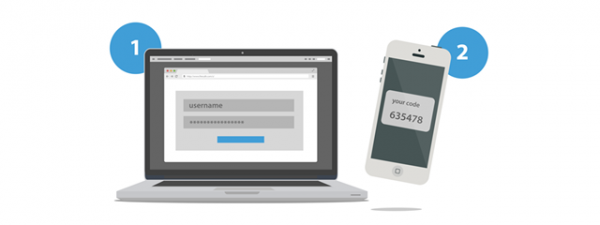
A couple of days ago, I was at a security conference called ESET Security Days. There were quite a few interesting sessions and I've met quite a lot of smart people who work in information security. One of them is Nick FitzGerald, Senior Research Fellow at ESET. He takes care of security in the Android ecosystem and we were lucky to have him as a guest in an interview about malware and security on Android devices. He h ad many interesting things to say and you should read this interview:
Who is Nick FitzGerald?
Before we go into the interview, I would like to talk a bit about Nick FitzGerald. He is a very private person and you can hardly find any information about him on the internet. Today he is taking care of information security at ESET Australia, focusing mostly on the Android ecosystem. Nick is one of the people who established the methodology for VB100 certification and ran the first VB100 tests at Virus Bulletin. Alongside his job at ESET , he still works with Virus Bulletin as a member of its advisory board.
When I met him, I very much enjoyed his friendliness and openness. He shared lots of interesting information during the conference and, while dining with him for a bit, I very much enjoyed our conversations and his sense of humor. It was a pleasure meeting him and I am very happy that he accepted to be a guest in this interview.
What is the most common type of malware that targets Android users today?
From the detection telemetry data we get back from those in our installed base who have enabled the telemetry sharing option, the greatest proportion of detections is the general class of things we call Potentially Unwanted Applications (or PUA). Not all of our customers choose to have PUAs detected – it is an install-time option and there is no default setting; the customer must make their own choice. PUAs are typically apps that use shady techniques to achieve results that, while not overtly malicious (which would be outright blocked by our product without the customer having any choice), experience shows us many customers do not wish to have run on their devices.
After PUAs, and looking at real malware detections, the most common types of Android malware we have seen blocked on customer devices this year are "droppers". These are typically a bundle of a legitimate (although usually quite inane) app and something malicious. Commonly the malicious component is not installed or enabled until sometime after the initial app installation. This is a relatively recent development in the Android malware arena but has rapidly become quite popular with malware writers. The apps installed by such droppers can be anything, but it seems at the moment that PUA advertising apps are the most common payloads.
What is the nastiest thing that can happen to Android users if their devices get infected with malware?
I'm not aware of this happening, but in theory the device could be "bricked", either deliberately or unintentionally. Whether that is better or worse than, say, having all your most intimate secrets (and photographs) stolen and possibly posted to the web or otherwise used in an attempt to embarrass or ransom you, may depend on who you are and what you keep on, or can access from, your smartphone.
Looking at actual Android malware, the LockerPin family, which can set a random PIN lock screen that is not known to the perpetrators is very nasty, as the conditions that could allow recovery from this device-locking payload will almost never be found on a typical device.
In your view, which are the major weaknesses the Android ecosystem has in terms of security?
Compared to its main competitor in the mobile arena, iOS, Android is somewhat more open, allowing developers and users greater flexibility. That may result in benefits to the user but it also means that malicious activity is more easily directed to Android users. There have, for example, been many more overtly malicious apps get into Google's official app store than into Apple's. Further, Google is generally quite skeptical about the possible value of security products for the Android platform, so does not provide advanced capabilities to better support such products. This is a major architectural weakness in the Android operating system.
When looking at the Android platform and how it is built, which are the top things an Android security product can't do for users in terms of protection?
The lack of system hooks or official security APIs means that proper on-access scanning cannot be performed. For now, a virus scanner is limited to checking an app when its installer package is downloaded to the device and again when the app is installed. Google could allow verified security apps to install with higher privileges but has chosen not to, so unlike on other operating systems, like Windows for example, your Android security app is just another app running at the same privilege level as any other. Equally concerning is that the Device Administrator privilege is doled out at the user's behest. We can disable them, but they are quite likely to just as easily disable us.
How does a security product for Android, like ESET Mobile Security & Antivirus protect its users?
Our Android security products offer several forms of protection. There is malicious code and (optionally) PUA detection care of the antivirus functionality, malicious website blocking utilizing the ESET Live Grid®, device location and anti-theft functionality and system diagnostics.
Editor's note: PUA means Potentially Unwanted Application. Generic PUA detections provide you with timely detection of new and updated Potentially Unwanted Applications.
Which are your top security recommendations for Android users, other than using a security product on their devices?
Stick with the official Play Store (that kind of sucks as advice for certain regions of the world!) and be very careful about granting the Device Administrator privilege to anything but a bona fide security or system administration app.
What do you think about malware, security and privacy on Android?
Now that you have read Nick's perspective, I would like you to share yours. Do you think that you need security products for Android? Are you using one on your smartphones and tablets? Did you deal with malware for Android and what happen ed?







